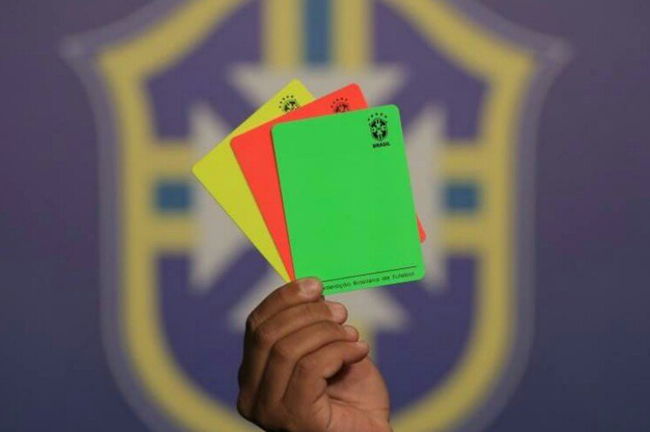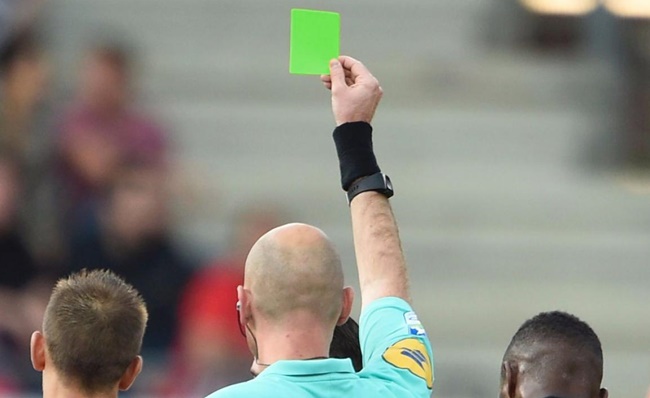
Photo: @CBF_Futebol/Twitter
As you may recall, a new scheme to reward players for admirable sporting conduct was trialled in Italy’s Serie B last year, which ultimately saw Vicenza striker Cristian Galano become football’s first official recipient of the ‘green card’.
As approved by FIFA, referees can administer the green card for 12 clearly defined “exemplary acts of virtue”, including (but not limited to) admitting to simulation and unseen handballs/fouls, preventing teammates from harassing officials, and generally owning up when incorrect decisions are given.
Green cards are then totted up at the end of the season, with the most virtuous club receiving a distinction of some description… possibly a gift hamper.

The majestic green card in action
Indeed, it would appear that the Serie B trial was successful, as now the Brazilian football federation (CBF) have announced that they’re planning to use the green card scheme in the upcoming Copa Verde – which, coincidentally, translates as ‘Green Cup’.
That said, as if to undermine the whole thing from the jump, the CBF broke the news by loudly declaring the whole thing a “NOVELTY!”…
NOVIDADE! #CopaVerde2017 terá cartão verde para o fair play >> https://t.co/IZmzxatc3U pic.twitter.com/4TXJq5ZSeN
— CBF Futebol (@CBF_Futebol) February 23, 2017
Given that the Copa Verde is a fairly minor, regional tournament in Brazil, we can go ahead and ascertain that FIFA are still very much at the “suck it and see” stage of development re: the global green card roll-out.
In case you were curious, all 12 acts of virtue are outlined on the CBF website as follows…
1. Informing the referee that a mistake has been made that disadvantages his opponents.
2. Stopping play after the ball touched the hand without the referee noticing.
3. Informing the ref that a penalty decision benefiting the opposing team was correct.
4. Informing the ref that a decision not to award their own team a penalty was correct.
5. Informing the official that a goal kick should be a corner kick.
6. Informing the official that the opposing team should have a throw-in.
7. Informing the official that a card shown to an opponent was incorrect.
8. Stopping their own team’s attack upon seeing an injured opponent.
9. Prevent a teammate from complaining about a decision from an official.
10. A member of the technical staff proactively engages with officials without complaining.
11. Referee notices that the coach tells player to play the ball and not waste time.
12. Other various fair play actions.
Grassing, basically.